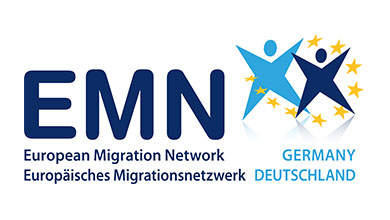EMN Synthesis Report: Migratory Pathways for Start-ups in the EU , , EU-wide comparative report of the European Migration Network on 25 Member States

Over half of the EU Member States consider that attracting and retaining innovative entrepreneurs and start-ups from countries outside the EU will promote a vibrant entrepreneurial culture. What are the main pull factors and requirements for foreign start-up founders and employees? The EMN Synthesis Report reveals good practices and challenges.
European perspective
Start-up admission schemes generally aim at fuelling economic growth and innovation and making the country more competitive in the globalised knowledge economy. Improving the EU's attractiveness for foreign entrepreneurs forms part of the objective of upgrading the single market. Attracting start-ups is also in line with EU migration policy objectives, such as tackling demographic change and satisfying labour market needs. According to the European Commission, if the EU is to remain a globally competitive player it needs to find better ways to attract migrant innovative entrepreneurs and support those already present in the EU.
Figure: Timeline of introduction of start-up schemes
 Größer darstellen
Source: EMN Sythesis Report "Migratory Pathways for Start-Ups and Innovative Entrepreneurs in the European Union" 2019: p. 16
Größer darstellen
Source: EMN Sythesis Report "Migratory Pathways for Start-Ups and Innovative Entrepreneurs in the European Union" 2019: p. 16
Start-up visa and start-up residence Permits
Recent years have seen a proliferation of admission schemes for "start-ups" and "innovative entrepreneurs", both within the EU and globally. They consist of incentives such as special visas or residence permits for innovative entrepreneurs from third countries. The UK was the first country to introduce a specific scheme in 2008, followed by Ireland in 2012, Spain in 2013, Italy in 2014 and the Netherlands in 2015. By 2018, thirteen Member States had specific admission schemes in place. A special visa and residence permit to admit start-up employees exists in Cyprus, Estonia, France and Portugal. Member States that do not have a specific start-up scheme in place reported that they use other channels to admit start-up founders from third countries, such as long-term visas and residence permits for self-employment and business activities.
Best practices
One of the most important "pull" factors for founders/employees is the Member State's start-up scene and the presence of hubs and locations with well-developed ecosystems where start-ups can develop and grow. Socio-economic factors at play include cost of living, salary levels, housing and quality of life. Cultural differences, however, are reported in some Member States to act as a deterrent, for example, due to third-country nationals not being used to the business culture of the Member State. Migration-specific incentives to attract start-up founders and innovative entrepreneurs include: online application systems, fast-track and shortened processing times, reduced documentary requirements, and assistance and support from relevant institutions with the immigration process.
Challenges
Common challenges in attracting start-ups and entrepreneurs experienced at macro level by Member States include global competition for talent, comparable opportunities in domestic and other markets, and lack of incubators and accelerators. Challenges at micro level include burdensome administrative procedures and lengthy application times.
The EMN Synthesis Report is available in English only. The Germany EMN study as well as a short version of the finding on EU level may be found in the EMN Inform and the EMN Flash. The latter both are available in German and English (see "Downloads" under "Further information").

